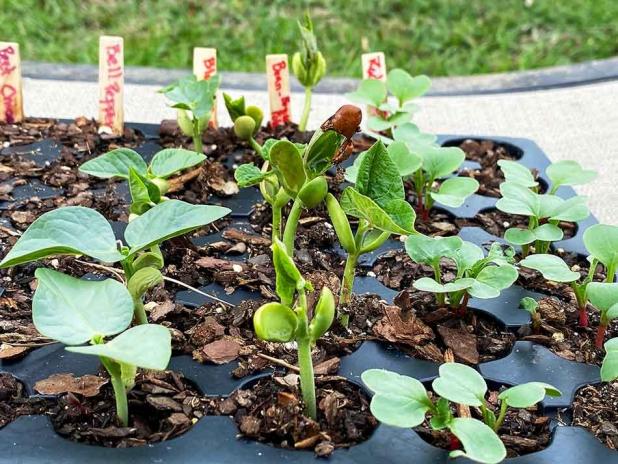
National Seed Swap Day is Jan. 30.
— LSU AgCenter/Heather Kirk-Ballard
Get It Growing: Save seeds to keep tradition alive
National Seed Swap Day has been celebrated every year on the last Saturday of January since its inception in Washington, D.C., in 2006. On this day — this year, it falls on Jan. 30 — gardeners come together and swap seeds from their best plants.
The art of seed-saving has all but disappeared from our culture. However, some passionate gardeners continue to carry on the time-honored and cost-effective tradition of collecting the seeds from each year’s harvest to grow next year’s crop.
For centuries all across the globe, humans have been exchanging seeds to the betterment of our civilization — and sometimes to the detriment of native ecosystems.
Here’s one example from history: the spice routes that linked the East to the West. In the 15th century, the Spanish, Italians and Portuguese were seeking spices. This led to the exploration of other continents and the discovery of many important agricultural crops, such as corn and sugarcane.
With the trade of seeds, Europeans could grow plants native to other countries themselves. No longer did they have to wait for the seasonal return of the traders traveling the spice route.
But trading seeds also opened the door to introducing new plants that threaten native ones. In the early 1900s, we began to understand the importance of seed source; conserving genetic material, favorable characteristics and physiological quality of plants; and understanding how plants adapt to and grow in different environments.
Years later, seeds are still critical to humanity. In 2008, the Svalbard Global Seed Vault opened on a remote island halfway between mainland Norway and the North Pole deep inside a mountain. The seed vault holds the world’s largest collection of crops — more than 1 million samples from around the world, with room for more — in an effort to protect diversity and the plant food supply of the world.
The extremely cold climate of this geographic region makes it an ideal location. Seeds are best stored at -18 degrees Celsius. The permafrost in the region and the extremely thick rock ensure the seeds will remain frozen even if power is lost due to either natural or human disasters.
You don’t need a huge vault inside a mountain to save seeds yourself, though. It’s easy to do and is a great way to preserve your flower and vegetable gardens, keep them going from year to year and share them with friends, family and neighbors. Seed-saving is a rewarding hobby that can save you money and help preserve local flavors.
First, I’d recommend reading “The Seed Garden: The Art and Practice of Seed Saving.” This is a great resource from the Organic Seed Alliance and Seed Savers Exchange that focuses on vegetable seed varieties. The book provides easy instructions on collecting seeds that are true to type. It also will help you learn about how home gardeners and farmers have saved genetic traits of vegetables over centuries through careful selection and preservation.
Another excellent resource especially close to this Louisiana girl’s heart is John Coykendall’s “Preserving our Roots: My Journey to Save Seeds and Stories.” According to Louisiana Public Broadcasting, Coykendall has been preserving the farming heritage of southeastern Louisiana through seeds and stories by making an annual pilgrimage to Washington Parish to record the growing techniques, recipes and oral histories of Louisiana farmers and gardeners. You can watch a documentary on his story and why he is so passionate about seed-saving on the LPB website at https://bit.ly/2LWXU5x.
We all could benefit from trying new seeds and plants. If this year is anything like the last, folks will continue to garden on a regular basis. You could try hosting a seed party with friends or neighbors.
Ask everyone to bring some of their own seeds to swap. Try heirloom varieties. If you do not have your own seeds, why not bring seed envelopes or labels to the party? It is a great way to conserve the biodiversity of plants, and many gardeners out there would benefit from National Seed Swap Day.
